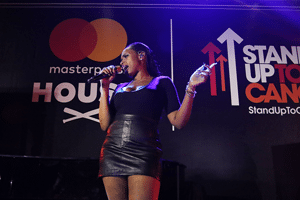Editor’s Note: This is the fifth edition in a series of Q&A’s with leading marketers about their sports marketing initiatives.
It was over 20 years ago, in 1997, when MasterCard utilized the World Series as the platform to launch its iconic “Priceless” campaign.
It wasn’t until after that initial spot was filmed that MasterCard signed on as an official sponsor of Major League Baseball. It marked the beginning of a relationship—now one of baseball’s longest—which continues to grow and evolve.
Last year, MasterCard brought it even further by signing an extension that included rights to become presenting sponsor of the MLB All-Star Game.
While in Miami for MLB All-Star Week, Evan Vladem, of Associated Group and a sports marketing and sponsorship consultant at rEvolution, sat down with Mastercard’s Executive Vice President of Marketing and Communications for North America, Andres Siefken, to discuss the strategy of the title sponsorship of the All-Star Game and the activations that surround it.

VLADEM: MasterCard signed on as title sponsor of the MLB All-Star Game in 2016. How big is that title sponsorship deal for the brand?
SIEFKEN: It’s huge. Being a title sponsor, there is a very different way of activating. From the time that you step out of the plane in the airport, everything is branded MLB All-Star Game with the MasterCard logo included. Everything with MLB All-Star branding includes the MasterCard logo. Our brand is always present, which brings unbelievable value.
VLADEM: Tell me about the wide mix of activations MasterCard offered to fans and consumers in Miami. You were heavily pushing MasterCard’s new digital wallet, Masterpass, your partnership with Stand Up to Cancer and consumers having “Priceless” experiences.
SIEFKEN: Our brand is about connecting people to priceless experiences. It’s not just buying a title sponsorship or having advertising on TV. Our mission is to really connect with people. The way we do it is with a partnership with Stand Up to Cancer. We bring that to people live, in a way that people enjoy.
The Saturday prior to the All-Star Game, we had an exclusive concert with Jennifer Hudson [at the Masterpass House at the W South Beach]. The people in attendance were those that donated to Stand Up to Cancer. It was the same situation for those that were invited to a VIP barbeque hosted by David “Big Papi” Ortiz [on the Sunday night prior to the game]. We had a VIP clubhouse at the MLB All-Star Fan Fest too, the Materpass Deck. People could enter the second floor of the clubhouse and meet MLB greats by donating money to Stand Up to Cancer, as well as using our digital payment platform, which is Masterpass. It was very cohesive. It’s about connecting.

VLADEM: For brands, how pivotal is it to have a charity partner to support campaigns?
SIEFKEN: For us, it’s huge. As a company we want to do a number of things. We want to eradicate poverty globally and we want to live in a cashless world. We give people access to tools to be able to have more commerce and access. We also support health and cancer. It’s very big for us. We are a purpose driven company. There is a real affinity when you have causes involved. The consumer is more connected with the brand as well. We are seeing more and more of that as we get deeper with Stand Up to Cancer. Our goal with Stand Up to Cancer is to go beyond Major League Baseball. We have so many good sponsorship properties that we have the opportunity to activate and connect with consumers on other sponsorships as well.
VLADEM: You received a massive amount of media extensions with your deal with MLB around the All-Star Game. How did you integrating these, even during the game?
SIEFKEN: From a scale perspective, we were in Miami but we wanted to get our message out to the rest of North America, and in some cases outside of the United States. The integration within the game was critical. From the very beginning of the game, you saw MasterCard children ambassadors coming out with players. They represented the brand and Joe Buck talked about it during the broadcast. We had numerous spots within the game and social media integrations, with live Facebook streams and SnapChat.
VLADEM: MasterCard holds sponsorships in various sports, such as soccer (UEFA), golf (PGA), tennis and NFL teams such as the Cowboys and Packers. How does the MLB deal compare?
SIEFKEN: It is a large partnership that has been with us for many years and it keeps on growing and growing. When you look at the asset of the integrated All-Star logo, it is the first time Major League Baseball has taken such an iconic game, such as the All-Star game, and given the opportunity to brand it and integrate with the logo. That’s a big win for us as an organization. That’s a cherished brand, it’s an institution. Its 88 years old. For the past two years, we have been able to integrate with that and use it as an asset. They cherish the partnership that we built with them over the years as well.
VLADEM: Based on MasterCard’s approach with MLB, what is your advice to other marketers?
SIEFKEN: In the world we live in right now, it’s important to build brands that don’t work on one-way communication. You really have to really connect and enhance experiences from what people think about the brand—not only from what they get on TV but from how they connect with the brand. That’s what we’re doing right now. We are taking it to a level where the brand is accessible and it’s more human. It’s not just a brand that talks to me. We have a great portfolio of sponsorships in the U.S. This one here is one we cherish. They are wonderful partners to work with. We heard some great comments from MLB such as us being a showcase of how other brands can touch their consumers. At the end of the day, MLB consumers are what they worry about. When Major League Baseball sees the value in what we do with our brand and how we elevate it, it’s huge. They are using us for the model of the future for what all of their sponsors should be doing. It was true activated week of sponsorship work. MLB executives said, ‘you guys invited us to your events. Typically, it’s the other way around.’ That says a lot about what we do with this footprint. We activate large.
Related articles:
Continental Tire MLS Sponsorship Reward is Loyalty and Purchases
Hyundai CMO Dean Evans on its All-American NFL Sponsorship
Heineken USA CMO on Dos Equis “Most Interesting” College Football Playoff Deal



